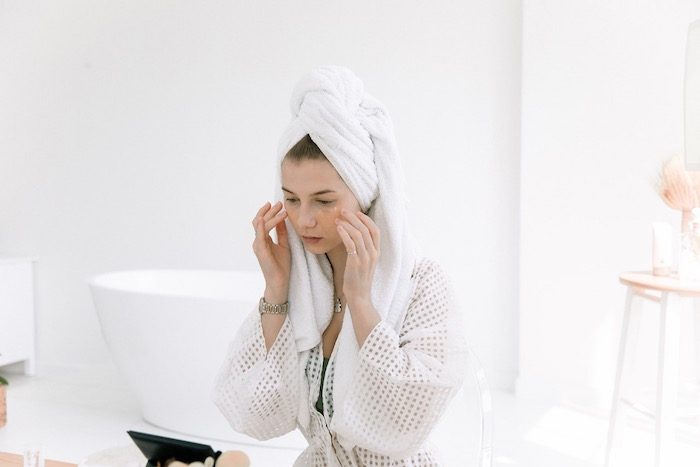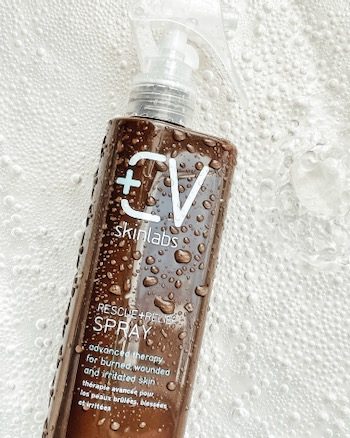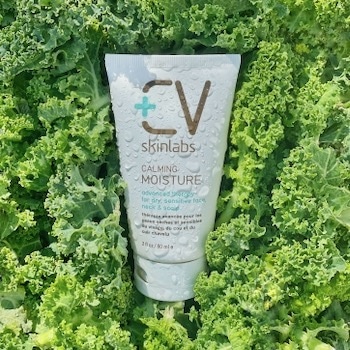
You apply moisturizer and apply moisturizer, and your skin is still dry.
What is the deal?
Why Dry Skin Doesn’t Respond When You Apply Moisturizer
It’s natural to think that after you apply your moisturizer, your skin will feel softer and more comfortable.
But that isn’t always the case.
You may apply extra moisture and still find that your skin is dry and dull.
Why would this be?
There are several reasons, which we’ll go over below. The important thing is to do some detective work and find out why your skin isn’t responding to your moisturizer.
Dry skin is damaged skin. It’s a sign that the outer barrier has been damaged, and is allowing too much moisture to evaporate out. This not only sets you up for accelerated aging, but also leaves you open to an increased risk for further skin problems, such as inflammation, irritation, and infection.
7 Reasons Your Skin is Dry Even After You Apply Moisturizer
1. Your cleanser is too harsh.
We don’t often make the connection between dry skin and cleansing, but we should. If you are stripping the moisture from your skin when you wash it, your moisturizer—even if it’s a good one—will have a hard time helping skin to recover, leaving you with dry skin.
You’ve probably been taught that your skin is clean when it feels squeaky clean, but this isn’t correct, particularly as you age. If your skin feels this clean, it means that you’ve lost some of the skin’s natural moisture during cleanser, and your cleanser is probably too harsh.
Look for a cleanser that is pH-balanced and includes some light moisturizers to help leave your skin feeling soft and smooth. In most cases, creamy, balm, or oil cleansers are the best for dry skin, though lotion cleansers can also be appropriately moisturizing if they are made with gentle ingredients.
 2. Your toner is drying.
2. Your toner is drying.
Many department-store toners contain alcohol, which can be drying for the skin. If you’re using one of these toners, even if your cleanser is a good one, you could still be drying out your skin.
A quality toner can help restore pH balance after cleansing, clean pores, and remove trace makeup and debris. It can also provide some moisture to help prepare your skin to better accept a moisturizer.
Choose a toner that is good for your skin. Avoid those with alcohol and chemical fragrances, as they can be drying and irritating. Look for one that’s moisturizing and soothing.
We recommend our Rescue + Relief Spray, as it will help tame any irritations while providing light healing hydration.
Remember that even if you have oily skin, you still need some moisture. If you let skin get too dry, it will overreact by producing even more oil, resulting in more breakouts. Our Rescue + Relief Spray is a great solution as it’s oil-free and non-comedogenic.
3. There’s too much dead skin buildup on the surface.
Your skin is consistently regenerating and resurfacing, which means that younger cells are being born deep in the skin and migrating up to the surface, as older cells slough off.
As you age, this process slows down. The dead skin cells on the surface, in particular, may not slough off as they should, and instead, hang around to make skin look dry and dull.
As these dead skin cells build up, they form a barrier on the skin that your moisturizer can’t penetrate. So even if you apply a good moisturizer, it won’t be able to get through to properly moisturize your skin.
There are two types of exfoliating products you can use to get rid of this dead skin cell buildup:
- Physical: These include scrubbing agents that have a rough texture and work manually by loosening and sloughing off the buildup.
- Chemical: These contain ingredients like alpha-hydroxy acids that dissolve the buildup and make way for younger skin cells.
Though you can use either type, many people with sensitive skin find that the physical types create microtears in the skin. This can lead to inflammation, irritation, and even acne breakouts.
So if your exfoliating product is making your skin worse rather than better, switch to a chemical exfoliator that includes gentle fruit acids like salicylic and malic acids.
4. You’re dry from the inside out.
Even if you’re slightly dehydrated, your skin is likely to look dry and dull. That’s because the body is smart: if it detects the water level is going down, it will pull moisture from the skin and other peripheral areas and deliver it to your vital organs, such as your heart, lungs, liver, and kidneys.
Of course, without that internal moisture, your skin is more likely to dry out. So make sure you’re drinking enough water every day, even if you don’t feel thirsty.
(Note: While dry skin lacks oil, dehydrated skin lacks water. Both can make skin look dry and wrinkled, but they require slightly different solutions.)
 5. You’re using the wrong moisturizer.
5. You’re using the wrong moisturizer.
If you have dry skin, you want a moisturizer that can provide your skin with a burst of moisture upon contact, then will penetrate deeply to moisturize the deeper layers of skin as well.
You also want a product with healthy, nourishing ingredients that will help your skin look and feel better over time. These include essential fatty acids (often from natural oils), ceramides, triglycerides, natural butter, glycerin, plant-based ingredients, and anti-inflammatory ingredients.
If you’re using a product with synthetic fragrances, petrolatum, alcohols, and other harsh ingredients, they are unlikely to provide lasting moisture. Instead, they tend to coat skin for a short time, after which their effects disappear.
We recommend our Calming Moisture and Body Repair Lotion. They both contain our powerful Tri-Rescue Complex with potent antioxidants to protect skin from the elements, along with natural anti-inflammatory ingredients to help calm highly reactive skin. They are full of nourishing natural oils like sunflower and jojoba, as well as natural shea butter and bisabolol (from chamomile.)
6. You’re moisturizing at the wrong time.
Turns out there is a “right” time to moisturize. Of course, you can apply moisturizer any time, but if you want to prevent dry skin, you must apply it directly after cleansing and toning, while your skin is still damp.
Why is this so important? Your skin has the most moisture when it’s wet, and moisturizers work best when your skin is already hydrated. If you apply moisture to dry skin, it will sink in and disappear, leaving your skin still feeling dry.
So apply right after cleansing and toning. If you need to apply at another time, splash your skin with water, dab it gently with a towel, and then apply more moisturizer.
7. You’re overusing moisturizer.
You may simply be applying too much product to the skin.
Moisturizers are designed to be used sparingly and too much can have the opposite effect. Plus, over-moisturizing doesn’t give your skin enough time to absorb the product completely and then “breathe” between applications. Instead, the moisturizer acts as a barrier, and won’t allow anything else through.
Over-moisturizing can also trigger the skin to stop producing its own oil, which slows the absorption of vital nutrients in your moisturizer.
You can tell if you’re using too much moisturizer by these signs:
- Clogged pores
- Blemishes
- Blackheads
- Excess oil production
- Parched or flaky skin
The best way to avoid over-moisturizing is:
- Use the best moisturizer for your skin.
- Exfoliate skin regularly—1 to 3 times a week.
- Drink enough water and eat water-filled foods (like melons and other fruits).
- Follow a routine skincare regimen every morning and night so your skin gets used to getting moisture twice a day.
Have you suffered from dry skin even after applying a moisturizer?
Featured photo by Ekaterina Bolovtsova from Pexels.

